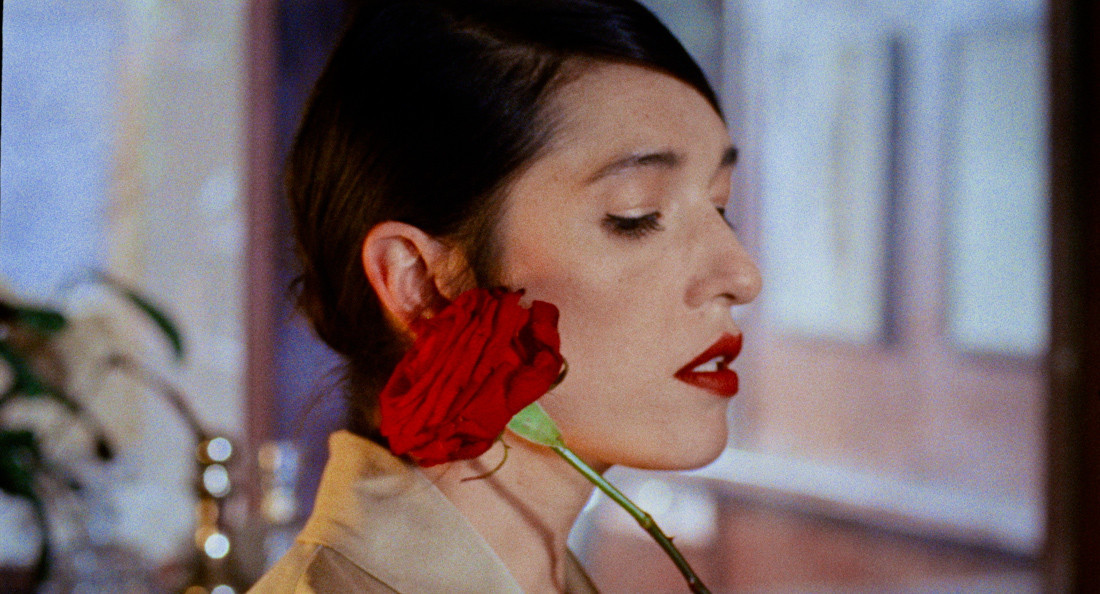Critipeg: Piaffe
★★★½ ☆
In a timely fashion, the 2020s have ushered the return of a classic, yet controversial subgenre: body horror.
From David Cronenberg’s Crimes of the Future to the Palme d’Or-winning Titane, body horror presents itself as a medium to explore body politics. The genre’s renaissance takes hints from its original trailblazers while exploring themes of gender, sexuality and the toll of capitalism on the human body.
Ann Oren’s 2022 film Piaffe follows – or more specifically, trots – in the same direction. The psychological drama, taking its name from the technical term for a cadenced, equine trot, might be the most beautiful body-horror flick of the 2020s.
The story follows a timid and solitary protagonist, Eva (Simone Bucio). After her sibling Zara (Simon(e) Jaikiriuma Paetau) ends up in a mental institution, Eva takes on their role as a Foley artist for a television commercial featuring a horse. While teaching herself the art of sound design, Eva’s foray into Foley soon becomes method acting and, eventually, a gradual, physical transformation into her subject.
The commercial, commissioned by a pharmaceutical company, promotes a fictional mood stabilizer called Equili, inspired by the equine. Committed to receiving the approval of her critical industry advisors, Eva goes to extreme lengths to achieve the perfect sound – even if that means changing herself.
Piaffe has the familiar sex appeal of Secretary (2002) while simultaneously coming across as completely sexless at times. Through Eva’s peculiar, sexual relationship with Novak (Sebastian Rudolph), a mysterious botanist, the film toys with kink, gender and power dynamics.
As she gradually takes on more equine characteristics, Eva’s changing sense of self, physically and mentally, is recognized through Novak, who leads a subplot toying with pharmaceutical modification.
It’s clear that Oren is a visual artist by trade. The colours, shot on 16mm film, are captured with immense forethought and care. The film’s delicate, unwavering charm softens the guilt of voyeurism, opening audiences to question their preconceived notions of sexuality, gender and their initial reactions to each scene.
Aside from the blaring techno quintessential to the Berlin setting, the film is as quiet as a ballet. It is disturbing, yet it is never grotesque.
Strangely, there are few surprises during Piaffe. With a few exceptions, Oren stays away from shock value, instead opting to foreshadow conclusions. Eva’s four-foot-long tail, for example, feels less alarming after her Foley sessions with makeshift coconut-shell hooves. In this way, the film takes on more magical-realism characteristics, while still taking its seat in the body-horror canon.
The closing scene feels disturbingly long (perhaps in a necessary way), while the film itself trots and canters. While visually decadent, the narrative leaves much to be desired.
That said, a lot of the interpretation seems to rest on the viewer’s individual experience of the film. Whether or not that is a sufficient explanation is also up to the viewer. To truly enjoy its 87-minute run-time, one must be guided by feeling and reflection, rather than plot.
Piaffe is a film that commands respect by the subtle strike of a riding crop.
Published in Volume 78, Number 06 of The Uniter (October 19, 2023)







